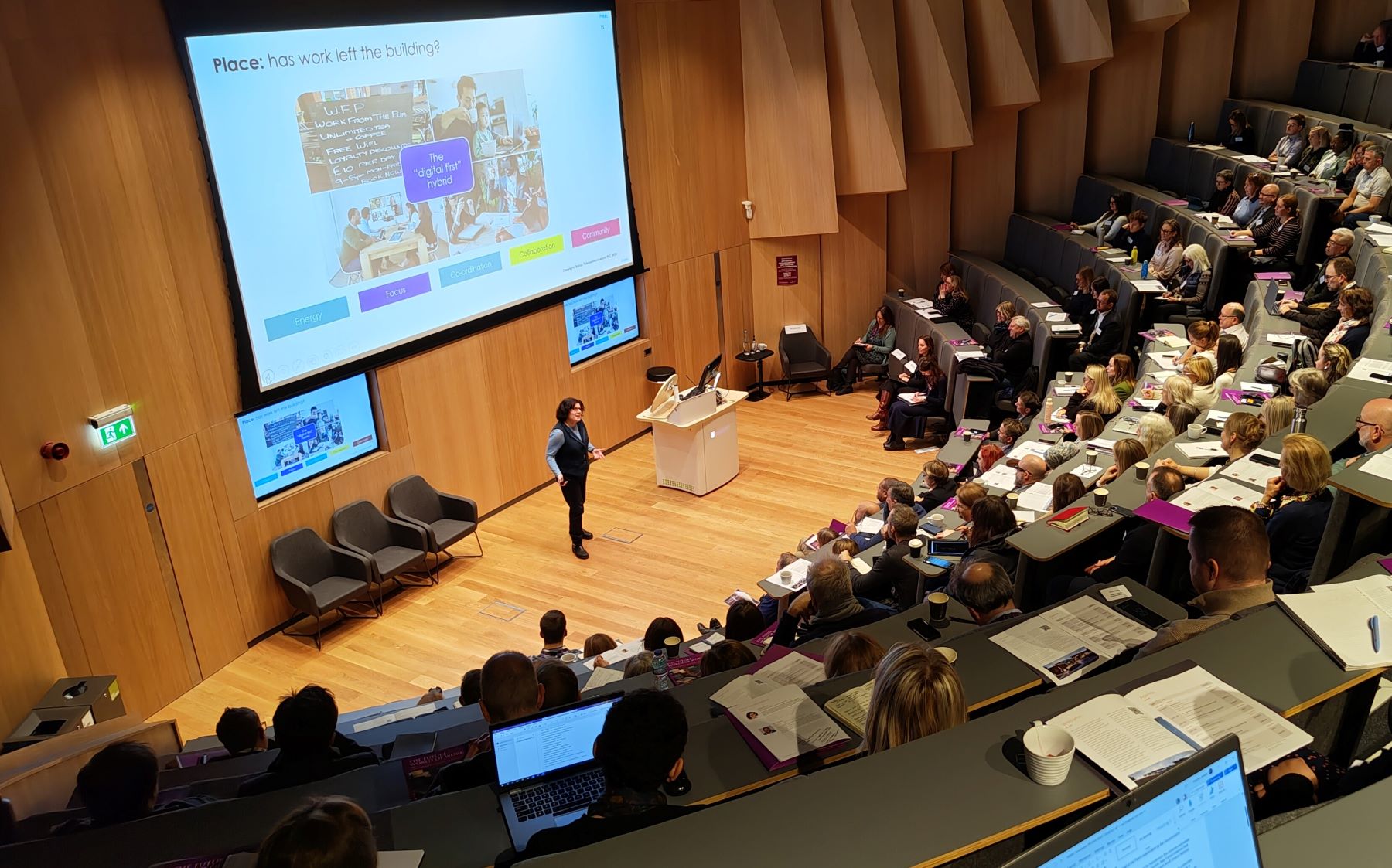
The Future World of Work Conference held at the University of Winchester's West Downs Centre this week enjoyed excellent attendance and excellent speakers.
BT's 'futurologist' Nicola Millard (pictured top) was among the speakers who spoke about the challenges of AI, hybrid working and the evolving expectations of modern employees.
Nicola addressed the problem of how to make 'work work for productivity and the planet'.
She said there was a sweet spot to be found with hybrid working - many organisations have found that a 3:2 split (three days in the office two at home) was the best solution.
Other companies were embracing a four-day week, explained Nicola.
Modern technology meant almost anyone could work from home, said Nicola, even a surgeon thanks to the development of remote robotics.
AI was not a threat to jobs, said Nicola, but a tool which could be used for routine tasks, freeing up employees to be potentially more productive.
AI’s major downside was that it was bad for the planet – Nicola explained that creating a slide for her presentation with Chat GPT had used the same amount of electricity as boiling a kettle.
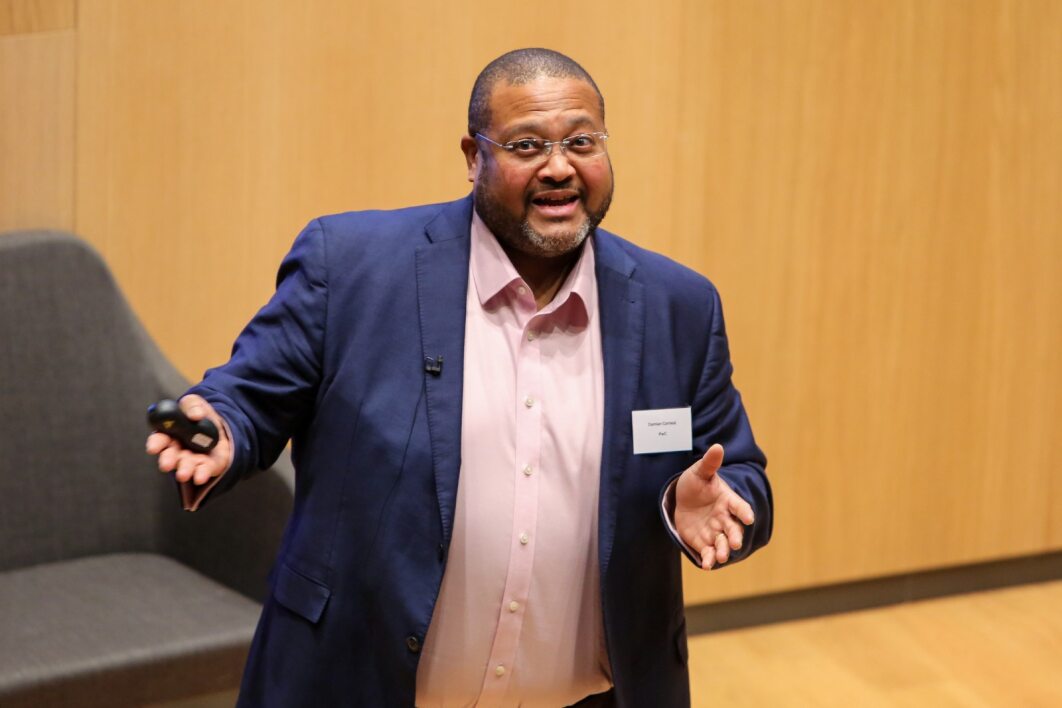
Damian Corneal in full flow
The message that AI was an opportunity not a threat was echoed by tech pioneer and inclusivity champion Damian Corneal, a partner at PWC, who urged businesses to be bold and to embrace new technology. Experimentation, and even failure sometimes, were not to be feared if they led to better working practices in the long run, he said.
He cited his work with Hillingdon Borough Council to create an AI call centre to deal with routine queries which allowed all the staff to be redeployed dealing with more complex cases.
Lord Mark Price, former boss of Waitrose extolled the virtues of promoting happiness in the workplace as it paid dividends in productivity and staff retention.
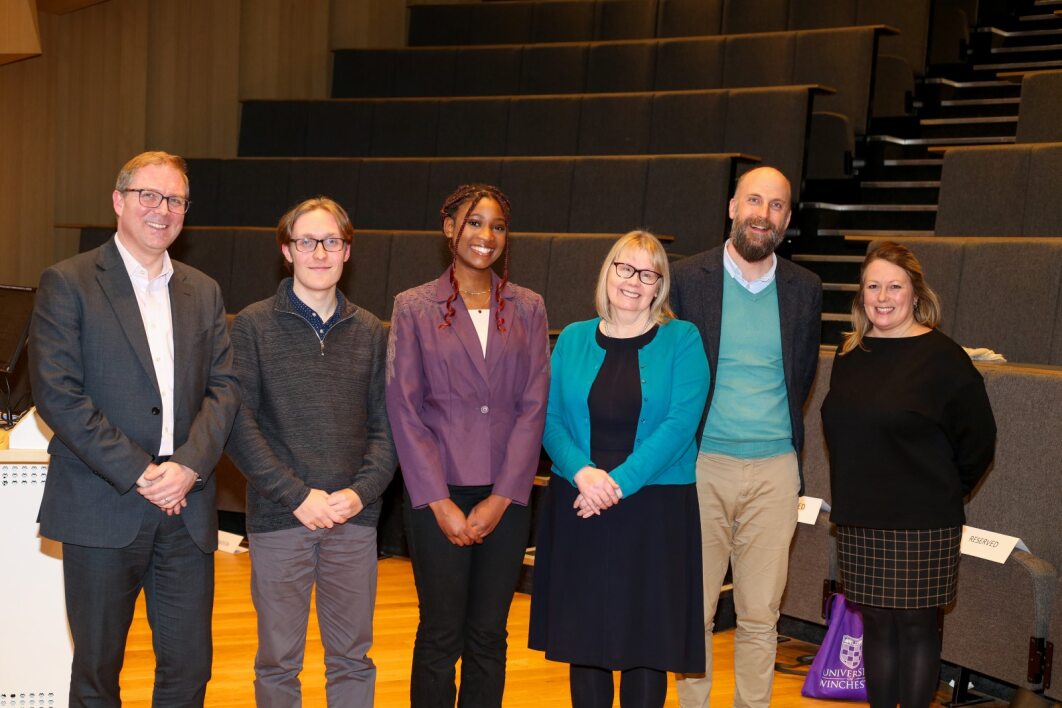
Members of the student panel with Andrew Kaye, CEO of South Hampshire College (far left) and Vice-Chancellor Professor Sarah Greer and Pro Vice-Chancellor Sam Jones.
The conference also heard from a panel of students who answered questions about their expectations of work in a session chaired by Andrew Kaye, CEO of South Hampshire College.
The event was opened by the University’s Vice-Chancellor, Professor Sarah Greer, who commented on the changes that had taken place in the world of work since the university’s forerunner opened in 1840 to train teachers.
In 1840 people could still work a leech collector or a knocker-up – a human form of alarm clock who knocked on workers’ doors and windows in the early morning.
Cllr Rob Humby, leader of Hampshire County Council, also remarked on change, reflecting on the fact that his grandfather, born in 1904, began life in a time before manned flight and lived to see a man land on the moon.
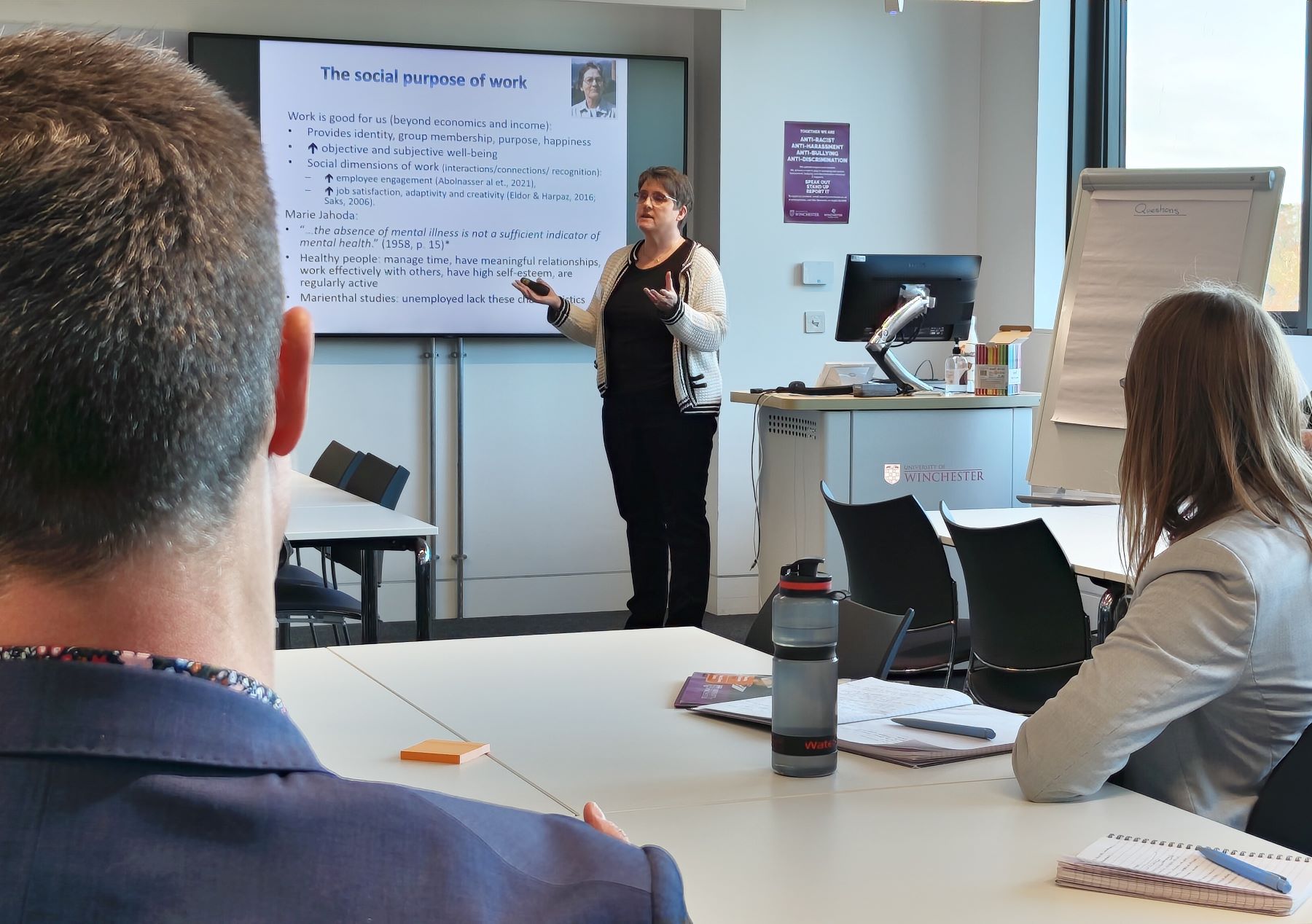
Dr Kim Bradley-Cole, Senior Lecturer and Chartered Occupational Psychologist, at her workshop on social connections in the workplace
Away from the main auditorium the conference hosted a number of workshops, many run by University staff. Topics covered included the strengths of AI in the retaining talent, managing social connections in a digital workplace, bias in recruitment, and how placements and internships can help develop a business.
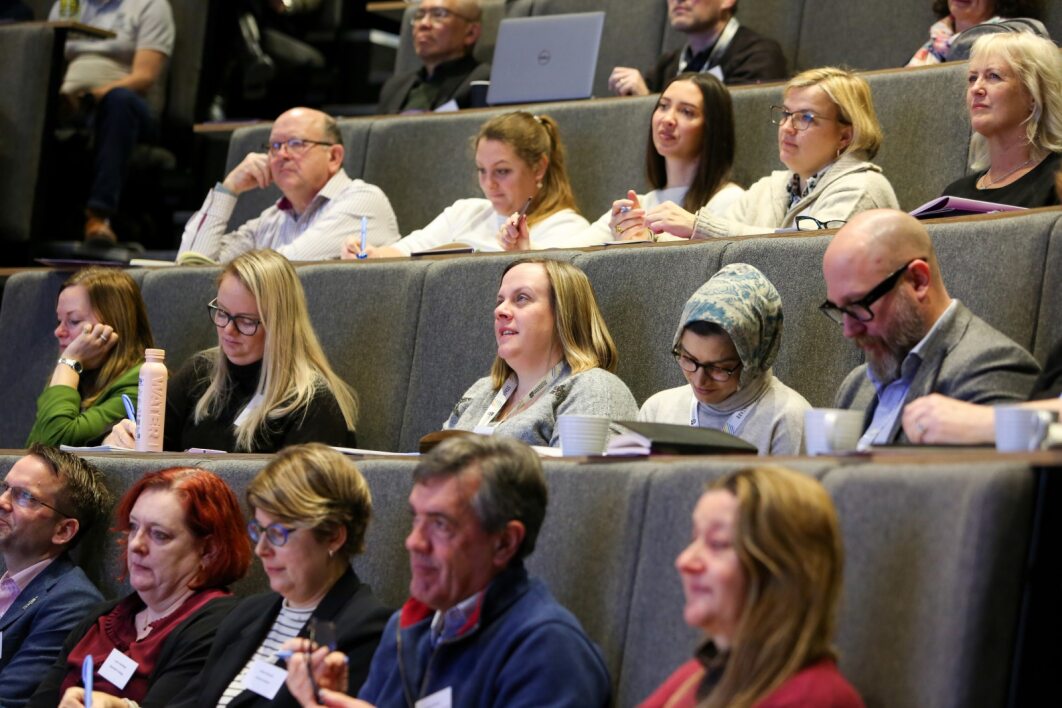
The event, which was attended by around 150, was widely praised by those attending. Comments posted included:
"Excellent day with really fascinating speakers"
"Really thought provoking...great delegates here so some excellent discussions"
"Thank you for today. It had been fabulous. I will be able to develop to a strategy to engage staff in a more meaningful way"
"I will be able to use ideas generated today to produce some careers related materials for my schools, thank you"
"Insightful day with great speakers"
The event was supported by Business South, Hampshire County Council, Enterprise M3, Hampshire and Isle of Wight Constabulary, South Hampshire College Group, Walnut, BT, PWC, Hampshire Commerce and WorkL.